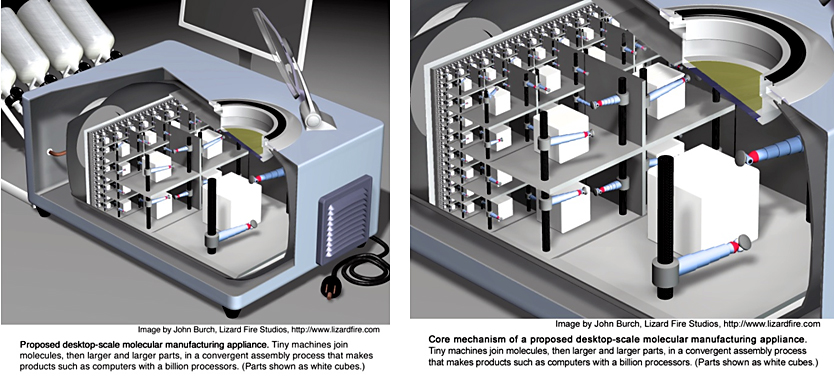
Other Books in Development in 2025
Nanotechnology, Nanomedicine, and AI: Toward the Dream of Global Health Care Equivalency


This book will explore and articulate an expanded vision for where advanced nanomedicine may lead.
The larger picture might be manifest via the emergence of a momentous paradigm shift that will have the potential capacity to dramatically transform the entire medical domain, through what is referred to as “Global Health Care Equivalency”, (GHCE), where any individual on the planet may have access to the same advanced and cost effective nanomedical diagnostic and therapeutic technologies, no matter where they happen to reside, or under what conditions they live.
The attainment of GHCE might serve to significantly reduce the perception of individuals in the developing world of being marginalized, at least in terms of health care, which may ultimately translate to conflict reduction. In the developed world, GHCE would serve to dramatically reduce health care expenditures across the board. Synergies between nanotechnology, nanomedicine, and AI may enable this vision on a global scale. Progress toward this goal will be incremental, with each successive wave of nanomedical technologies being more advanced than the previous wave.
The tipping point will arrive with the emergence of Molecular Manufacturing (MM), Quandary – Are Molecularly Manufactured Burgers Imbued with the Life Force? by Frank Josef Boehm and Angelika Domschke – QSpace Forums , which will make possible the cost effective fabrication of the classes of advanced autonomous nanomedical devices that Boehm describes in his first book: Nanomedical Device and Systems Design: Challenges, Possibilities, Visions.

Molecular Manufacturing: Emergence of the Grand Equalizer

![]()
This comprehensive companion text to Nanotechnology, Nanomedicine, and AI: Toward the Dream of Global Health Care Equivalency will explore the concepts and technologies behind the potential emergence of advanced Molecular Manufacturing(MM), while articulating how its potentially immense power may touch and positively transform practically every facet of human endeavor, while driving global scale environmental remediation.
It is estimated by many researchers and thought leaders that MM may transition from a science fiction concept to reality within the next 10-30 years. The rapidly evolving sophistication and popularity of 3D printing that we are witnessing at present might be considered to be a formative precursor of envisaged, exponentially more powerful, and dynamic “factory-at-home” systems, which would enable the ultrafine organization of molecular and atomic constituents to cumulatively fabricate virtually any type of consumer product imaginable (e.g., healthy gourmet foods, running shoes, toothbrushes, physician prescribed nanomedical diagnostic or therapeutic devices, photovoltaic cells, advanced batteries, smart phones, computers, as well as components for building additional MM units) with atomic/molecular precision.
In the medical realm MM will constitute the prerequisite technology for the realization of the vision of Global Health Care Equivalency.

Nanomedical Brain/Cloud Interface: Explorations and Implications


This book embarks on an in depth exploration of the future (hypothetical) possibility that the cerebral cortex of the human brain might be seamlessly, safely, and securely connected with the Cloud as a Brain/Cloud Interface (B/CI). Such an envisaged nanomedically facilitated cognitive augmentation may consist of a highly integrated network of sophisticated autonomous nanorobotic devices coupled with advanced AI toward the enablement of instantaneous and finely controllable connectivity with the Cloud.
This interface might serve as a personalized conduit through which individuals would not only have immediate access to virtually any facet of cumulative human knowledge, but also the optional and specialized capacity to engage in real time fully immersive experiential/sensory engagement, including what is referred to as “Transparent Shadowing” (TS), where individuals may experience episodic segments of the lives of other willing participants anywhere on the planet in real time, at full sensory resolution.
In conjunction with an investigation of the technical aspects of a B/CI, this book will also delve into its ethical, moral, sociological, legal, and philosophical implications. The prospective usefulness and benefits of such a powerful technology will be tempered by a careful consideration of the perceived risks and potential for misuse, such as neocortex hacking and nefarious thought manipulation and control, toward the formulation of a prudent future policy.
Myriad non-trivial questions will be brought to bear toward elucidating how B/CI technologies might potentially impact ones sense of self, and how that self may relate to others, the world, and beyond.
What might the benefits, risks, and consequences for human civilization be, when individuals have access to unprecedented opportunities for significant personalized cognitive, sensual, and experiential augmentation, and who may, through the use of B/CI technologies, be so intimately interconnected?
(Image credit: i-HLS)

News
Scientists reveal how exercise protects the brain from Alzheimer’s
Researchers at UC San Francisco have identified a biological process that may explain why exercise sharpens thinking and memory. Their findings suggest that physical activity strengthens the brain's built in defense system, helping protect [...]
NanoMedical Brain/Cloud Interface – Explorations and Implications. A new book from Frank Boehm
New book from Frank Boehm, NanoappsMedical Inc Founder: This book explores the future hypothetical possibility that the cerebral cortex of the human brain might be seamlessly, safely, and securely connected with the Cloud via [...]
Deadly Pancreatic Cancer Found To “Wire Itself” Into the Body’s Nerves
A newly discovered link between pancreatic cancer and neural signaling reveals a promising drug target that slows tumor growth by blocking glutamate uptake. Pancreatic cancer is among the most deadly cancers, and scientists are [...]
This Simple Brain Exercise May Protect Against Dementia for 20 Years
A long-running study following thousands of older adults suggests that a relatively brief period of targeted brain training may have effects that last decades. Starting in the late 1990s, close to 3,000 older adults [...]
Scientists Crack a 50-Year Tissue Mystery With Major Cancer Implications
Researchers have resolved a 50-year-old scientific mystery by identifying the molecular mechanism that allows tissues to regenerate after severe damage. The discovery could help guide future treatments aimed at reducing the risk of cancer [...]
This New Blood Test Can Detect Cancer Before Tumors Appear
A new CRISPR-powered light sensor can detect the faintest whispers of cancer in a single drop of blood. Scientists have created an advanced light-based sensor capable of identifying extremely small amounts of cancer biomarkers [...]
Blindness Breakthrough? This Snail Regrows Eyes in 30 Days
A snail that regrows its eyes may hold the genetic clues to restoring human sight. Human eyes are intricate organs that cannot regrow once damaged. Surprisingly, they share key structural features with the eyes [...]
This Is Why the Same Virus Hits People So Differently
Scientists have mapped how genetics and life experiences leave lasting epigenetic marks on immune cells. The discovery helps explain why people respond so differently to the same infections and could lead to more personalized [...]







